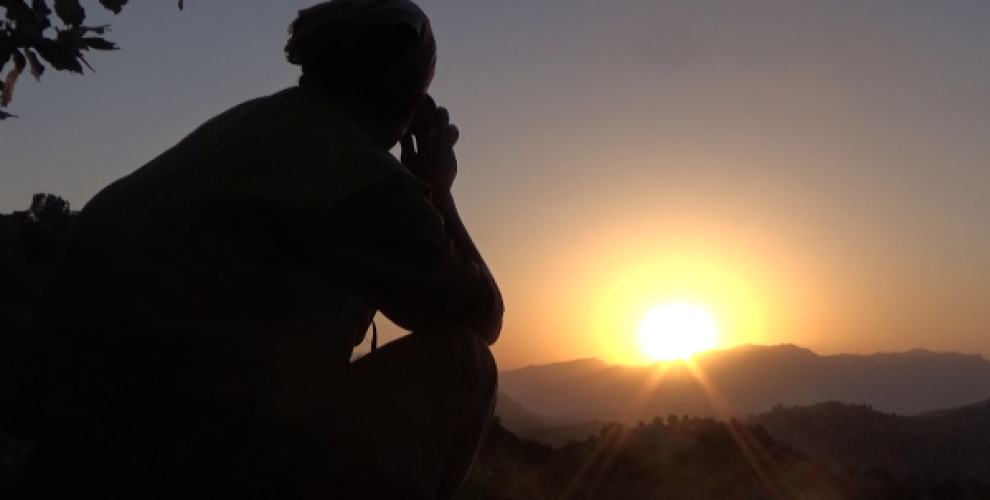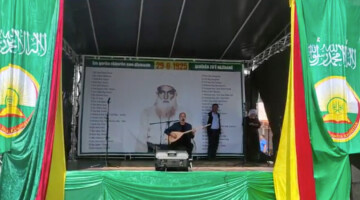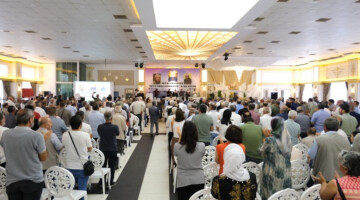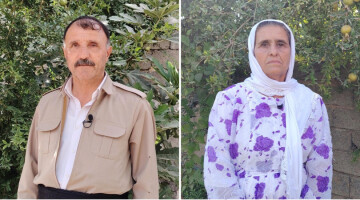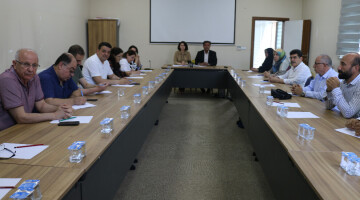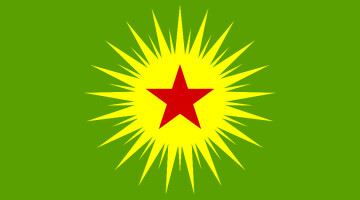In the mountains of Kurdistan, in the Qilaban (Uludere) region, where heavy clashes are taking place, we are on the move with the guerrilla forces. For getting to know the region we are in, we departed early in the morning at sunrise. After a long march on a guerrilla walkway, we take a break.
As I sat in a forest, that has obviously witnessed many clashes, following words of a guerrilla reached my ears: "The trees here are growing in virtue of the bodies of the young people that irrigated their homeland with their own blood. The more the fascist Turkish state burns these beautiful trees down, the more they grow persistently. The more the children of my country shed their blood, the more will the soil of Kurdistan flourish. And the newly thrived soil of Kurdistan is the sign of its loyalty to its children dedicated to their lands."
"EVERY REPRESSION WILL BE CALLED TO ACCOUNT"
She who uttered those words was a guerrilla of young age. Rojîn was her name. Rojîn joined the guerrilla ranks in 2014 from Colemêrg's (Hakkari) Gever (Yüksekova) district. The dynamic and young guerrilla Rojîn is guidingus in this region. With deep hatred and wrath did she glare at the Turkish military outposts across her. She said that she is filled with utmost fury against those who exert oppression and violence on her people and country and added: "Every act of oppression they impose on the peoples of Kurdistan, will be called to account."
As we were wandering in these areas, Rojîn whispered to us: "From here on you must bend down, they can see us now from their outposts". By observing her we simply imitate her movements. After we left that zone behind us, we come to a halt at a certain spot and guerrilla Rojîn took out her binocular hanging around her neck, starting to reconnoiter. While observing the military outpost she asked: "Have you ever wondered how much longer an army, that can be dealt blows every possible minute, can occupy this land?" For a moment silence set in. After a while I finally asked her: "So what do you think?"
A RESOLUTENESS THAT COULD RISK EVERYTHING
Rojîn said: "Take a close look at the history of the world. Never could a dictator fascist regime prevail against resisting peoples. All of them faced defeat one after another and took a seat in the dark pages of history. And those who called them to account were those resisting. We, the freedom fighters of Kurdistan, will no doubt triumph in this struggle. Because our life philosophy is to struggle for a free life, to resist against the oppression of the tyrants. As long as this philosophy exists, no tyrant will ever be victorious. The freedom of the people of Kurdistan is near."
These words are the words of a young Kurdish female fighter, who has taken a resolute and clear stance in the struggle for life. In the resolute fight of the freedom fighters we see that they could risk anything to achieve freedom in the fight they are giving.
THE VALLEY OF MASSACRE
I am looking at the mountains, hills and valleys, each of which has been given a distinct name and harbours a special story. As guerrilla Rojîn was telling the tales of them, I said to myself that they all need to be written down. All the heroic deeds that have taken place in this land need to be documented. Then all of a sudden Rojîn points at a valley in the far distant, hands her binocular to me and says: "Behold that valley very well. This is the Dola Qetliamê (Valley of Massacre). Do you know why it is called like that? There our people were torn into pieces by Turkish warplanes. 34 of our innocent people were massacred in the most violent manner. The comrades call it therefore the Valley of Massacre."
That spot, which Rojîn showed me, was the valley in which 34 people from the village Roboskî had been killed in Turkish airstrikes in 2011.
The morning of that incident comes clearly to my mind. The moment I saw it on the news. That day, at which mankind was shred to pieces in front of the eyes of the whole world. While looking at that valley, I wince as if going through those very moments anew.
I was viewing the Valley of Massacre, when guerrilla Rojîn asked me following question: "Do you understand now why they say that the soil of Kurdistan is blossoming with the blood of its children?"

